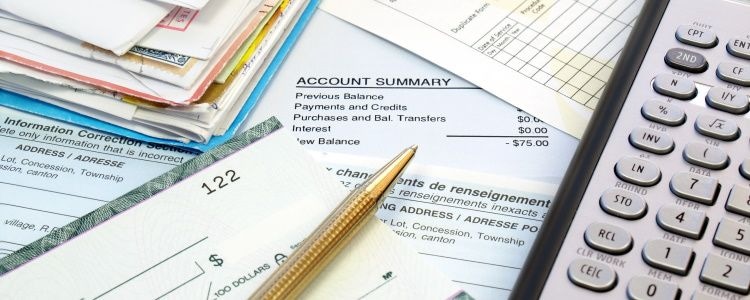Income based auto loans are issued by dealerships that may or may not check your credit score, and the loan terms are largely dependent on what your actual monthly income is. This means your income and down payment hold more weight than your credit rating. If your credit score is getting in the way of your next car but you’ve got the income to repay a loan, then read on.
Proving Your Ability to Repay a Car Loan
To a lender, your income is a large part of your eligibility for an auto loan – you need money to pay for the vehicle, after all! For many traditional auto lenders, your credit score is another important piece of the puzzle. Your credit score is a reflection of your credit reports, and without a strong credit score, lenders may turn you away for financing despite a solid income situation.
If you only have the income to prove your ability to repay the car loan, but not the credit score to back it up, then it may be time to explore subprime financing or in-house financing. These lenders typically determine how much you can afford each month, then you choose a vehicle that fits your maximum monthly payment: monthly income determines what auto loan and vehicles you qualify for.
Subprime and in-house financing lenders assist borrowers in tough credit circumstances. For these lenders, your credit score isn’t the main ingredient of your car loan eligibility. Sounds too good to be true? Don't worry, there are still requirements you need to meet to prove you can take on an auto loan.
Income Requirements for Bad Credit Car Loans
 To prove your ability, stability, and willingness to pay, subprime and in-house lenders not only look at your minimum monthly income but also your work history.
To prove your ability, stability, and willingness to pay, subprime and in-house lenders not only look at your minimum monthly income but also your work history.
Income based auto loans typically require:
- A minimum monthly income of around $1,500 to $2,500, proven with 30 days of computer-generated check stubs.
- A consistent, three-year work history without large gaps between jobs (large gaps defined as longer than 30 days).
- If your current employment is your first job, many lenders require that you’ve had it for around six months to a year.
- If you aren't a W-2 employee, any 1099 income typically needs to be proven with two to three years of professionally prepared tax returns and/or supporting bank statements.
- Unearned income such as permanent disability and Social Security generally needs to be proven with an award letter and supporting bank statements.
Since income based auto loans don’t just rely on your credit history, the factors surrounding your employment are very important to subprime and in-house financing lenders. Auto lenders of all types want to be confident in your ability to repay the loan now and throughout the entire loan term. Car loans are typically anywhere from 48 to 96 months – which means you’re usually going to be paying on the loan for around four to eight years.
Subprime Financing vs. In-House Financing: Pros and Cons
To determine which auto lender you need to go with for an income based auto loan, it can depend on your actual credit situation. Since both subprime and in-house lenders can approve car loans for borrowers with decent income but poor credit, let's dive a little deeper to see which lender could be for you.
Subprime lenders
These lenders are signed up with special financing dealerships. Subprime is another word for poor credit, and it typically applies specifically to lenders that help borrowers with credit scores lower than 660. These lenders often assist borrowers with bankruptcy, past repo, and situational bad credit caused by a job loss or other financial hardships.
Pros:
- Bad credit borrowers welcome
- Credit history isn’t the most important factor in overall eligibility
- Typically signed up with franchised dealerships
- New and used car options
- Credit repair opportunity since loans are reported to the credit bureaus
Cons:
- Typically can’t approve borrowers with a repo that’s less than 12 months old
- Borrowers with serious delinquencies on credit reports may not be eligible for financing
Subprime lenders generally require a down payment, typically at least $1,000 or 10% of the vehicle’s selling price. You may also need a recent utility bill, recent phone bill, list of personal references, valid driver’s license, and then your documents supporting your income.
In-house financing
These lenders are unique in that the dealer is also the lender. All the buying and financing takes place at the car lot with the dealer. Dealerships that offer this financing are called buy here pay here (BHPH) used car lots, or tote the note dealers. Many of these dealers finance borrowers with poor credit since they skip the credit check and provide the loan themselves.
Pros:
- Often skip the credit check
- Borrowers with serious credit delinquencies may be eligible
- Usually a one-stop-shop experience
- BHPH dealers are plentiful across the states
- Income and down payment are the main determinants of eligibility
Cons:
- Your interest rate may be higher than average
- Used cars only
- Typically a large down payment requirement
- Credit repair from the car loan may not be possible
In-house financers may only require a down payment (sometimes up to 20% of the car’s selling price), your valid driver’s license, and proof of income. However, a dealer that doesn’t check your credit isn’t likely to report the loan or your timely payments to the national credit bureaus, so credit repair may not be an option with this route.
Next Step: Finding a Dealership!
You may have a spotless employment record and great income, but it may not mean anything to an auto lender if your credit score isn’t great. If you want to get on the road to your next auto loan where your income is held in high regard, then start right now, online, with us at Auto Credit Express.
Skip the search for a dealership by filling out our free auto loan request form. We’ll look for a dealership in your local area that’s equipped to assist bad credit borrowers. There’s never a cost or obligation, so get started now!
















